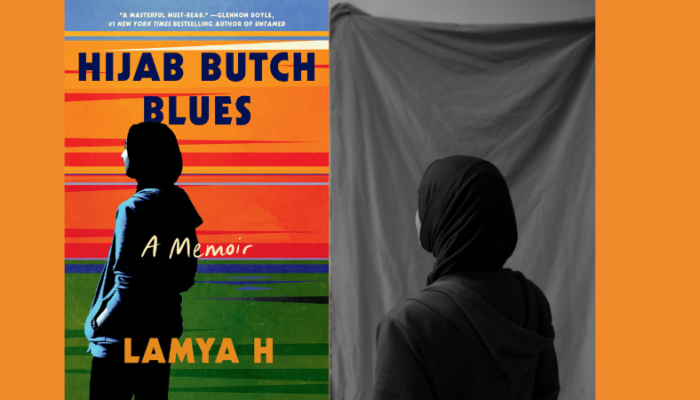MASSA CARNIS
The first time you meet an angel, you are four years old. You’re sulking with your back to the laundry room door because you’ve gotten tired of banging against it. Mother and Father are playing loud music anyway, the bass reverberating through the door. At least, you’ve decided, you can be annoying, when they unlock the door later and find you blocking the way.
You’re a very spiteful person. You vastly overestimate your own competence.
The angel is tall, taller than the ceiling, even, bending over to fit in the tiny room with all six of its wings, and it’s so bright that you can barely stand to look at it. It’s covered in eyes, hundreds of them in every color and form you can think of, human eyes and bug eyes and cat eyes and spider eyes and fish eyes and all of the ones that can blink at you do.
You bare your teeth at it.
The angel says your name, the one that dziadzia uses and no one else, because of all the Zs.
It doesn’t have a mouth. Its face is all eyes and light shifting restlessly underneath translucent skin, bulging and stretching, and there’s a pressure behind your eyes building the longer you look at it but you can’t look away.
Kazimierz, the angel says again, soundless and more clear than anything you’ve ever heard. And then: Run, run, run, run.
You scrunch up your face, purse your lips. It doesn’t elaborate, only repeats run, run, run, run, even and interminable.
It leaves when the door handle rattles.
Run, you think.
#
You are a changeling. Massa carnis, in Martin Luther’s words: a lump of flesh with no soul in it and barely any thought, a burden at best and torture at worst; a useless, emotionless waste of space and resources bound, incontestably, for Hell. Mother calls you a punishment for her sins, a loveless child for loveless sex. You are br ˀbdnˀ, you are an antichrist, you were made by the Devil, deformed as all things forged in brimstone must be, mixed and silent and slow-dying; you see angels, And no marvel, the Apostle Paul said in a letter to the Corinthians: for Satan himself is transformed into an angel of light.
#
You have a room to yourself. It’s small, with dirty white walls and a concrete floor, and there is a pile of 99-cent notebooks and 2-cent blue ballpoints next to the bare mattress which sits in the corner. If you sit at the head of the bed with your back to the wall, legs splayed out in front of you, the notebooks are perfectly within reaching distance, and your right elbow can rest on the bottom ledge of the window.
All but one of those notebooks is full, filled front-to-back with cramped small-caps and illegible cursive scrawl, in a cryptolect patois of Latin, Sumerian, and Anglo-Saxon. Father speaks none of these languages.
8-4-10, the latest entry reads, a dozen pages from the end of the newest notebook. H natalis a-da-al. 6. A-gi-ba H excitare phobos, bælcan abt gig. It’s here, heo gu de gu de, it’s here, it’s here, it’s here.
#
Babci dies when she forgets how to swallow the flavorless sauteéd chicken breast and mashed potatoes you’ve made for her every day for the last five years. Her face loses all its color and her fingers turn blue and cold. You forget that isn’t normal for other people, and you don’t realize anything is wrong until her lips turn blue as well. Your lips have never turned blue before, not even when you nearly died.
You shout for Mother and Father. “Take your brother into the other room and call 911,” Mother says, face turned towards you as she kneels above Babci.
“I can’t use the phone!”
“Yes, you can.”
“But—”
“Call 911,” she says.
You take your brother into the kitchen, where the house phone is, and you hug him to your chest as you dial the number. Your hands are shaking.
You stumble your way through the conversation. “Help, my Babci’s choking, I think, she’s not—” Breathing? All-there? Do you tell the operator that she forgot the little English she knew last year, that she’s been calling you by Mother’s name for months, that at dinner tonight her mouth was opening and closing but she wasn’t really chewing, just copying the motion?
There’s a garble of unintelligible sound on the other end of the line. “Where,” you think the woman says. You give her your address, and you hang up halfway through something that might be “Stay on the line.”
“Is baba dying?” your brother asks, and you’re not sure if he even knows what it means. He’s twisting his head around, trying to pull himself out of your grip to see into the front room. Father is doing chest compressions.
“Yes,” you say. You don’t believe in lying to children.
#
You’re six, the first time. Mother holds you still as they pour holy water over your head like a poor man’s oil of the catechumen, and the salt burns in your eyes and you thrash and there is shouting, the pastor puts his hand on the top of your head and he commands, “Get out, foul spirit, in the name of Jesus Christ, for the hand of the Lord is upon you.”
#
15-4-10. Ic 2, S. Non draco sit mihi dux, vade retro satana.
#
Father takes away all of your books one day, except for some of the non-fiction he deems acceptable. Gardiner’s Middle Egyptian Grammar stays, thank God, alongside Mere Christianity and Table Talk. Deviancy in Early Rabbinic Literature and your smuggled-in copy of Gay New York go, and so does the collection of Swinburne’s letters. He throws a paperback Bible at your head: the Contemporary English Version. You hate the CEV. He hates you, and novels, so it evens out nicely.
Not much changes. You spend fourteen hours of the day rocking back and forth in the corner and reciting poetry under your breath, as opposed to six. You start writing quotes from Jurassic Park in the margins of Job, where that awful translation’s footnotes try to convince you that the fire-breathing Leviathan is a crocodile.
You tear out Revelations and tape it to your bedroom wall, cover it with annotations in Aramaic and Greek, post-it notes reading things like “beast of the earth, Gen 1:24 & Rev 13:11?” and “4E/Rev disparate POV: their blood I will require of you”, pages of print-outs on the Vulgate Liber Esdrae Quartus, the Book of Enoch, the Sibylline Oracles. You have an eschatological murder wall, and if you were allowed to have other hobbies, you would need a new one.
#
Sometimes Mother tells you she loves you.
Paul adjured the Ephesians, Wherefore cast off lying, and speak every man truth unto his neighbor: for we are members one of another.
#
“Ended is begun, begun, ended, quick as torrents run.” Your eyes are resolutely on the ceiling. The angel is outside the window, has been since the sun set. It’s 3AM now.
Misery, it says, the light beneath its skin roiling, playing on the chipped white paint. Misery, misery, misery, misery, misery.
It never tells you what it means, but then, it doesn’t really need to. Run, you remember.
#
You cry when you’re frustrated. You used to cry all the time, before you could talk, but now you cry when you’re arguing with someone and you know more about the topic than they do, you have a longstanding history of academic scholarship to back you up, you have a seven page bibliography, and they’re still, for some reason, trying to fight you.
You don’t cry when someone dies. You don’t cry when you’re in pain; you’re in pain constantly, after all, muscle contractures and migraines and never enough oxygen, and sometimes it’s worse than usual, and sometimes you mention to the doctor that your wrist has been bugging you lately and that’s how you find out it’s been broken for weeks. You don’t cry when Father calls you an abomination, or when he beats you for it, reminding you all the while that it is his mercy you have to thank for your life. You don’t cry when you see something touching, or heartfelt, you don’t laugh at a joke so much that tears come to your eyes, you don’t even cry when you’re chopping onions and your tears turn into sulfuric acid.
#
18-4-10. L gu de, When bad things happened in the house, [massam carnis sine anima] laughed and was happy; but when things went well, it cried. Gu de exorcizimus/cwellen.
#
If it weren’t for your brother, you would think the entire concept of caring about people was a lie humanity told itself to feel less self-centered. You have a stronger reaction to roadkill than people you know, people you’ve known your entire life, dying. You care more about dog-eared first editions than your babci’s death.
You feel a little guilty about that. It sounds wrong. It sounds like something that makes you less of a person.
Maybe they’re right after all, Mother and Father. Maybe you really are a soulless lump of flesh with no purpose other than to be a trial for the faithful, that you really do deserve everything that people have said you deserve, that you should be drowned, or, failing that, exorcised some more; it didn’t take the first three times, but that doesn’t mean it’s hopeless! The exorcism rite they’ve always used casts out an unclean spirit from a servant of God, and by no accounts are you a servant of God.
You can’t even tell the difference between love and complacency. That’s not human, is it? It can’t be.
#
1-5-10: Paenitentiam.
#
You lie on the mattress on your back and you stare up at the ceiling, unfocused. You’re holding onto a little crucifix tightly enough that it bites into your skin, a thin trail of blood running down the underside of your arm and soaking into the ticking like a parody of stigmata.
“Dear Lord,” you say. It catches in your throat. You don’t remember the last time you did this of your own free will. “In your name I pray.”
You’re not Catholic, but you have rosary beads and nothing to lose, so you pray the decade: Pater Noster, ten Ave Marias, Gloria Patri, Domine Iesu, Salve Regina.
There’s blood on the rosary.
You recite the Geneva Catechism, call and response, three hundred seventy-three questions beginning with “What is the chief end of human life?” and ending with church hierarchy and governing, and you know them all by heart. You hate that.
Then Vade retro satana, and it’s Tuesday, so after that you say five Glorias, three Aves, and again three Glorias; Qui habitat, Pater Noster, and the rest of the Novus Ordo. By the breath of thy mouth, O Lord, repel the evil spirits: may they retreat from thy power, for thy kingdom hath approached.
Nothing changes.
Ritus exorcizandi obsessos a daemonio.
Nothing changes.
Exorcizmus in Satanam et angelos apostaticos.
Nothing changes.
You feel no different, no cleaner, no holier, no more like you should be allowed on hallowed ground, no more human than when you started; you pray, then, not from a Psalm, not from a creed, not from ‘Now I lay me down to sleep’. You close your eyes and hold tight your bloody rosary and you pray, and you must stay like that for hours, laying bare your maybe-nonexistent soul for the Lord. You do not cry, but there are times when you almost feel like you might.
You pray. And when you finish praying, when the sun has gone down and you have said everything you could say, you feel no more faithful than you ever did, no more pure, and you only hate yourself all the more. I abhor myself, said Job unto the Lord, and repent in dust and ashes. You repent of imagined sins, and you are just as Hell-marked as you ever were. The Core hasn’t changed in a day, depravity is still total and atonement is still limited and election is still unconditional and you are still damned and what’s the fucking point?
#
When you talk for the first time, everything’s okay for a while. It’s not long after your second exorcism, and Mother and Father think maybe it really worked, that the Devil’s hold on you has been shaken free. You are twelve years old and you are all at once a person with a mind and a voice, though your tongue remains unwieldy in your mouth, and, sure, they’ll figure out you’re a fag and a he-she soon, but it’s nice while it lasts.
#
“You don’t care, do you?” Mother says. “She’s dead and you don’t care.” Her eyes are red-rimmed, but she isn’t crying. She never cries when she’s angry.
You glance up from your book for only the time it takes her to speak. “Of course I do,” you say.
#
16-5-10: Ic lassus—referre ACS, ‘I am weary of…everything but sleep’—& idek quim faciem sed us. Ic i hríewe cha. Inim sig H non féogeþ ic.
#
Sometimes Mother tells you she loves you, and you tell her the same.
#
You sit at the head of the bed with your back to the wall, legs splayed out in front of you. There are bruises on your arms, three empty pages at the back of your last notebook, a pocketknife and a decade rosary on the open Bible, the one you don’t have half-pinned to the wall. And Satan answered the Lord, and said, Skin for skin, and all that ever a man hath, will he give for his life.
#
17-5-10: Ic i hríewe, ic i hríewe cha, sorry, sorry, sorry, ic i hríewe H, ic egoista, ic i hríewe.
#
The angel stands, hulking, in the corner, with all of its eyes upon you, and for once the light which moves beneath its skin is still.
Run, it tells you. Run, run, run, run.




